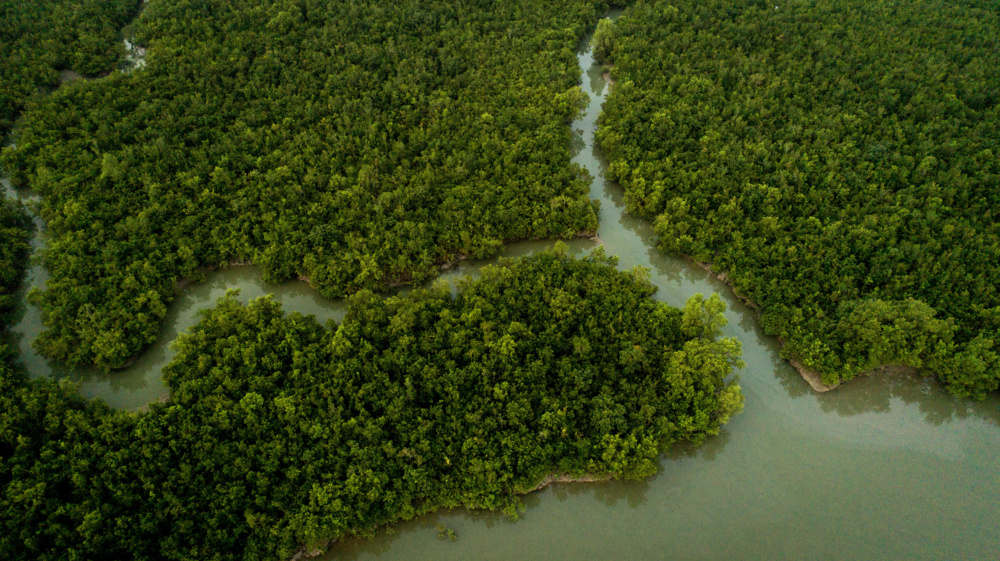
The first three things on John Kerry’s desk
John Kerry’s appointment as the “climate czar” for the Biden Administration is a positive sign of intent for the new administration. However, time is short and ambition is needed.
The appointment of John Kerry as Joe Biden’s special presidential envoy for climate, with a seat on the National Security Council, represents a major step in the right direction and a rejection of the worst environmental excesses of the Trump administration. Kerry has huge experience and expertise on climate issues, and has rightly said that the Paris Agreement alone is not enough to build a healthy, sustainable planet.
These are promising signs of ambition for an administration which made the climate crisis a key campaign subject. As the USA works to become a leader on tackling climate breakdown, reversing wildlife loss and ensuring environmental justice, here are the first three things he should focus on.
Deforestation
Tropical deforestation alone accounts for 8% of global emissions, and is surging. Brazil has just recorded a 12-year peak in forest destruction, accelerated by a president at best indifferent to, and at worst, actively endorsing, this attack on the natural world.
If this continues, the landmark Paris Agreement John Kerry was so influential in organising will go up in smoke. However, this also means that decisive action to protect the world’s remaining rainforests will boost our chances of meeting the Paris goals. At present, the Lacey Act in the USA bans the import of illegally logged timber into the USA, and Senator Brian Schatz has called for legislation to ban the import of any commodity produced on illegally deforested land.
We encourage Mr Kerry to support Senator Schatz’s proposals, but also to go further. Only banning the products of illegal deforestation may encourage weaker local laws as countries adapt by simply legalising forest clearance. Legislation should also focus on the financial institutions funding deforestation, not just the companies clearing the forest. These financial institutions provide the power that keeps the deforestation system running; billions of dollars in 2019 alone.
By introducing smart new laws and redirecting the flow of finance to sustainable investments, the USA can have a powerful impact to protect the life support systems we all depend on, and show global leadership to tackle the climate crisis.
Raising ambition on energy
Decarbonising energy is a vital part of any effective climate action, and the Biden-Harris plan includes $2tn to shift to “an equitable clean energy future”. This includes vital themes such as improved building materials and carbon neutrality in the power sector by 2035. However, it also places far too much faith in technology which simply does not exist.
While some technological contributions, such as better batteries, are improving, others are not. Carbon capture and storage, touted as a silver bullet by many world leaders, has never been successfully deployed at a large scale, and some projects are going backwards; a clean energy plant in Texas which aimed to take carbon out of burning coal has closed.
The rejection of fracking bans by the incoming administration makes meeting climate targets significantly more challenging, even before the additional risks of fracking’s methane release, drinking water pollution and health issues. Meanwhile, renewable energy technologies are now cheaper to build and run than every type of fossil fuel. John Kerry has previously been a supporter of fracking, but there is no longer any need for any fossil fuels to be used in “bridging” away from the most polluting of them; it’s time for renewable energy to take over.
For truly effective energy production, the USA should prioritise proven technologies, a rapid shift to entirely renewable energy, a total ban on fracking, and avoiding expensive and ineffective solutions like carbon capture and storage. These actions are essential for the USA to be a leader in global climate diplomacy.
A just transition
The Covid-19 pandemic has shown us that environmental action is not a cost. Spending now to protect jobs, ecosystems and the global climate will provide massive savings and a thriving economy. By transitioning to a circular, zero-carbon economy, the USA will cut back on rising inequality, at home and abroad.
Ultimately, the climate crisis is a human rights issue, perhaps the biggest our planet has ever faced. Those who are most affected by the impacts of climate breakdown, both in the USA and overseas, are frequently those who have done least to drive it. We welcome the Biden-Harris administration’s explicit commitment to environmental justice.
The world now stands at a crossroads. The recovery from Covid-19 can lock us into a death spiral of rising inequality, surging emissions and irreversible damage to the planet, or it can be the stimulus for a fundamental reshaping of our relationship with nature. As the world’s biggest economy, the USA has an outsized role to play in ensuring we pick the better path.
A re-entry to the Paris Agreement that prioritises a massive investment in renewable energy, housing and nature restoration - all sustainable, high-quality jobs which are proven solutions to the climate crisis - should be John Kerry’s first priority.
It would show that the USA is ready to leave behind the environmental vandalism of the Trump administration in deed as well as word, and tell the rest of the world that the work starts here.
SIGN UP FOR OUR EMAILS AND STAY UP TO DATE WITH EJF

